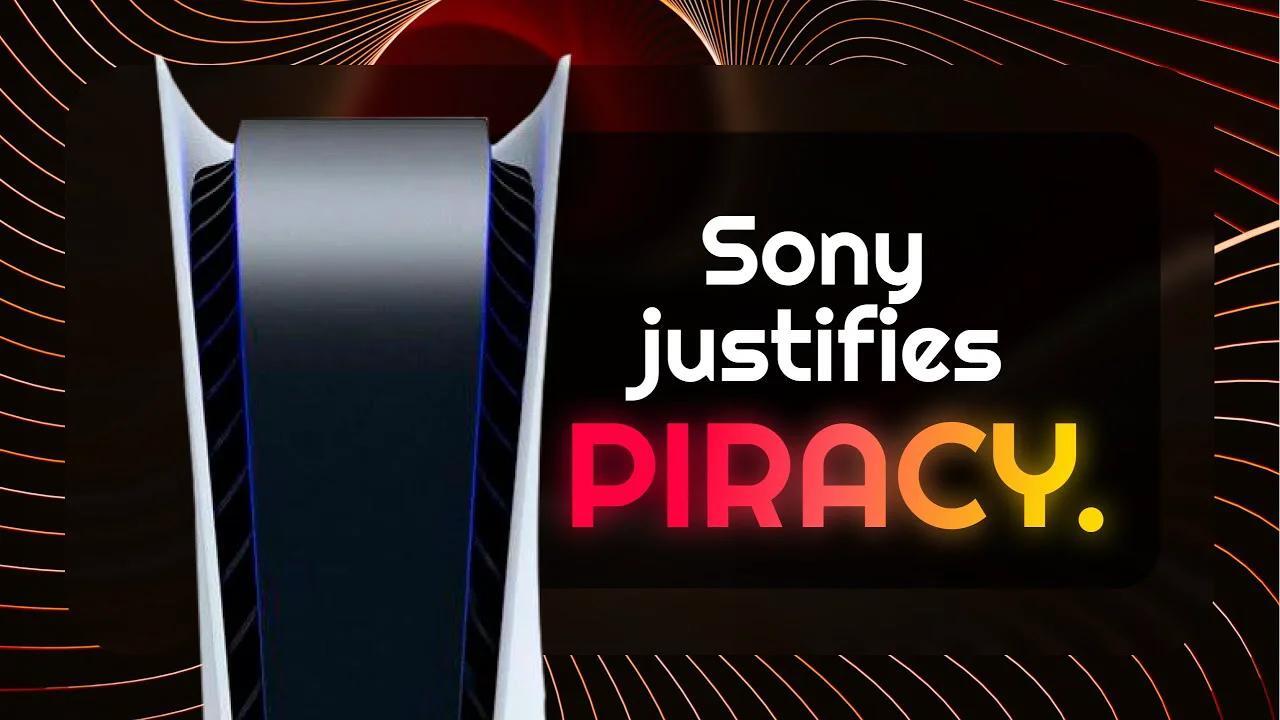- cross-posted to:
- piracy@lemmy.dbzer0.com
- cross-posted to:
- piracy@lemmy.dbzer0.com
If the content is not stored locally and DRM free, then you don’t own it. Don’t pay for content that you can’t own. 🏴☠️
Is there any platform or medium where I can buy locally stored and DRM-free software? Even if I buy a game on disc I am fucked, cause most games need updates. I can only name GOG.
Given the recent controversy, it calls into question the definition of the word ‘buy.’
GOG is the only one that I know of too.
itch.io is fantastic. Mostly indie stuff with some bigger name stuff, but it’s by far the best out there for devs.
It’s hard to find quality games in the sea of single dev weekend projects on itch io…
Uh, that’s practically all software and games these days.
In this case Sony is taking away TV shows that people purchased. They can be purchased on physical media that will be playable as long as you have the disc. The DRM on DVD and Bluray discs can be easily removed to make backups that will play on anything forever.
As for games, everything on GOG is DRM free. They have downloads for the installers so you can keep a backup copy to install decades from now even if GOG is long gone by then.
I bought DRM-free TV episodes from Google Play (IIRC). Everything was great until codecs got updated a couple of years later and the videos were suddenly jerky to the point of unwatchability.
Even when I own it, there’s no guarantee I get to keep it.
You can probably play it properly on a PC using something like VLC (A pretty powerful video player)
If the content is not stored locally and DRM free, then you don’t own it.
Have fun managing tens of TB of backups. I have given up on that quite a while ago, DRM-free is just not a practical for the amount of digital content you collect over the years. It’s a nice to have thing that comes in really handy sometimes (e.g. watching movies on unsupported device like VR headsets), but it’s not a solution for digital ownership. In some ways it’s actually worse, as you can’t practically sell DRM-free copies, as you don’t have a proof of ownership. You’ll also miss out on updates for new technologies (codecs, OS versions, etc.).
This needs a legislative solution or some NFT-like thing that gives you a certificate like “You own this, feel free to pirate if we go out of business”(digital signed by company).
Sony understands only one language… MONEY. I stopped buying their products since they installed a root kit decades ago in my computer to prevent it from ripping my legally bought CDs to my computer. I had to reinstall windows to get rid of that virus. Never again! And all my electronics were Sony back then
They do something similar on their smart TVs - it’s not possible to run Kodi with torrent streaming plugins, they block it on purpose.
How is it blocked? Could you work around it with a debrid service? i.e no torrent protocol
Reminder that the largest brands regularly and shamelessly steal from small independent artists to sell for profit, knowing that the artists don’t have the resources to do anything about it: https://web.archive.org/web/20230726050616/https://www.nytimes.com/2023/03/01/arts/design/digital-art-copyright-marvel-panini-wizards.html
And these are the companies trying to convince you that pirating big name media for your own personal use is theft.
Sony is one of the vilest corporations out there.
Fuckers literally installed rootkits on customers’ computers (across the board, you listen to a CD on your computer- bam) to police DRM.
Check “Sony Rootkit Scandal”, they got caught and were sued… yet here we are. Again.
Just feel like I should at least add two more things here:
-
Storing information do their customers as plaintext data, then getting hacked and losing all that information (infamous PSN hack);
-
Releasing a portable console that cost between 250 and 300€, promising support for it then 2 years in, give up on it, never officially tell customers, but have one of your higher execs tell the press said console is a great “accessory” for the PS4.
This is why I don’t personally buy Sony hardware.
The Vita’s failure is really weird when you consider that they had already produced a successful portable system that had years of support, the PSP.
The only thing I can think of is that they were refocusing their games division around the PS4 to reclaim their space in the home console area after the disaster that the PS3 was initially taking advantage of the initial failure of the Xbox One.
PS Vita and their owners were just a collateral Sony was absolutely willing to sacrifice.
-
Since we’re sharing YouTube videos around, I suggest this video by Jeff Geerling about how to legally own and stream media (Piped link)
In the US, he is still breaking the law ripping discs. It is against the DMCA to circumvent the DRM on the discs. So he is really just pirating by a different means.
Here is an alternative Piped link(s):
Piped is a privacy-respecting open-source alternative frontend to YouTube.
I’m open-source; check me out at GitHub.
Kinda slightly sensationalist title but yep…
We are having a good discussion about this in AskLemmy: https://lemmy.nz/post/3983363
“What is the legal difference between owning digital and physical media?”
As a side note, how are we going with instance agnostic post IDs? I can only post a link that uses my home instance, but obviously most of you won’t be on lemmy.nz and will have to do some fuckery to open that in your home instance if you want to be able to comment.
Fortunately Sync just redirects to a link on my home instance. I know I saw a GH issue on what you mentioned but I haven’t checked it in a couple of months.
Edit: found it. Still in discussion phase. https://github.com/LemmyNet/lemmy/issues/2987
Ah thanks, we’re still waiting.
Reminds me I should check in on the merged communities process. Federation at the community level instead of/also at the instance level would be awesome.
As a side note, how are we going with instance agnostic post IDs
Tapping it works fine on my app, redirected to the post on my instance 👌 although I believe the situation is still pretty awkward for desktop frontends, they need to put the link into the Search box to open it on their instance AFAIK
There are two proposals (https://github.com/LemmyNet/lemmy/issues/2987), one for a syntax specific to comments which would make your link the following:
#3983363@lemmy.nz (it might already work in some frontends, but it most likely won’t yet)
and the second is using standard web technologies to register handlers for lemmy and then linking to posts like so (using my instance as an example):
navigator.registerProtocolHandler("web+lemmy", "https://lemmy.escapebigtech.info/search?q=%s", "Lemmy cross-instance link handler")which would take you to the search page where your instance will show you the post on your own instance.
I personally think the best way is something in between, or rather implementing both
I prefer the simplicity of the first option but it’s good to see progress
deleted by creator
If buying is not owning, thenpiracy is not stealing.It’s its own, separate thing.
One thing I’ve not seen discussed, is this actually Sony’s fault or are they not behest to the companies that hold the content rights to do this?
I’ve not looked into it much beyond comments so I don’t have the answer myself.
I don’t know if it makes any sense to assign blame here to another party than Sony. As a customer who bought a license to watch these shows, that’s the company that you have an arrangement with. It seems that their licensing arrangements with Warner Brothers were limited time, and either WB isn’t inclined to renew them or is asking more than Sony is willing to cough up.
Probably a combination of both if I had to guess. WB is seeking to maximise the value of their own HBO Max streaming platform, so they want the content to be exclusive and not license it out to others. At the same time Sony is probably not excited to keep spending cash every few years just to keep content available to customers, they’re not making any additional money from that.
So the end result is the current situation. Obviously customers agreed to whatever terms Sony put in their EULA at the time so I’m sure it’s legally covered and whatever, but it seems pretty scummy and misleading nonetheless. Like, if they were honest on the purchase screen and said “you can pay $20 for the right to watch this season of mythbusters, but any time we like we can take it away from you again and there’s nothing you can do,” how many people would have bought that? But effectively that is what people bought, they just weren’t aware.
Yes, it’s Sony’s fault.
Shout out to Streamio + real-debrid + torrentio! 🖤🏴☠️
The problem here is people didn’t buy content. They’ve bought a license to view content and somewhere in the smallprint is Sony’s right to revoke the right whenever they like for whatever reason. Other services have done likewise, either withdrawing content or just failing altogether.
So first off, as a consumer stop buying DRM’d shit because it won’t end well under any circumstances. Second, lobby for digital property to have rights akin to physical property so the right to destroy, lend, sell, or donate it is inherent to a purchase. e.g. maybe a purchase gives you a token and a signed / watermarked file in a playable format. And incentivize providers to sell digital property by taxing services that impose DRM to create a favourable price disparity.
No, what you describe is called “Rent” or “Lease”. People who press a “Buy” button and buy something, expect to own it. Words have a meaning, and trying to wiggle around this with fine print should be considered fraudulent.
People are buying something - a revocable license to view content through the service. Look at the T&Cs of any of these services and it’ll say as much within that wall of text.
Hence why I advocate for digital property, a token of ownership and rights that go with it.
If I give you the impression that you buy a gold bar, but in reality you get a cheap gold plated metal bar, then that is fraud. It doesn’t matter if it looks and feel the same.
I would have more sympathy for that argument if the same was applied to the government regulating land and taxes. It ain’t your land or your money, you have it on lease from the government so stop bitching and render unto Caesar.
No, he’s right. You are buying something, but what you’re missing is that you’re not buying the content itself. You’re buying the right to access the content for an indeterminate amount on time. You’re not renting in the same way that buying a movie ticket isn’t renting. The thing you’re buying is just inherently temporary, and that’s the problem.
It’s not “buy” by itself, it’s “buy a film” or “buy a TV series”.
The word “buy” followed by the name of a service (say, “access to films”) can indeed carry the meaning you describe (so in that example “buy access to films” is the same as “renting films”) even if it is an unusual wording, however when the word “buy” is followed by the name of a good, not a service, (i.e. “buy a film”) it is interpreted in trade, legal and common terms as acquiring ownership rights to that good.
Granted, IP law is a big bloody mess and Consumer Rights in places like the US are pretty much Fuck-You-Plebe, so legally in the US who knows what levels of misleading contractual terms and one-sided post-sale of imposition of new contractual terms via EULAs towards retail customers are legal, but in both common usage and trade, in pretty much all areas but those covered by IP Law, “buy a good” means buying a product, which is something else altogether than “buy temporary access to a good” which is the meaning Sony is using.
Generally in Consumer Law, these things tend to boil down to whether a normal individual with no legal expertise could be reasonably expected to understand the terms of the contract with the meaning Sony claims or not, though in the US, with the kind of Consumer Protection laws it has, run-of-the-mill (not rich, not lawyers or judges) consumers are most likely legally fucked, de facto and quite possibly de jure
however when the word “buy” is followed by the name of a good, not a service, (i.e. “buy a film”) it is interpreted in trade, legal and common terms as acquiring ownership rights to that good.
Thats why you’ll never see “The word buy followed by the name of a good”. In fact, you probably won’t even see the word “buy”. Most commonly you’ll see “add to cart” and then “check out”. Which are coincidentally the same words you’ll see when buying a movie ticket.
If you can “buy” a movie ticket which allows you to watch a movie on a temporary basis, you can “buy” a license to play a game on a temporary basis.
This isn’t even a new, online marketplace problem. Even when you were buying physical disks, you were still purchasing a license, not the game in perpetuity.














